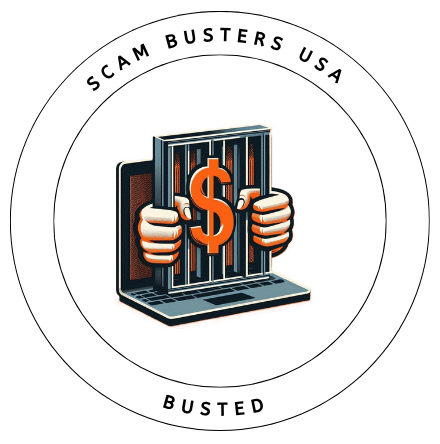I will make money if you click links on this website at no extra cost to you. This is known as an affiliate relationship, and I want to be open about it right away. If you’re unsure what an affiliate disclaimer is or why it matters, I’m here to walk you through everything you need to know before you click or buy through any of these links. This is an in depth article about Affiliate Disclaimers and my dedication to transparency.

What Is an Affiliate Disclaimer?
An affiliate disclaimer is a statement I put on my website, blog, or email newsletters to let you know I earn a commission when you purchase products or services through certain links. This doesn’t change the price you pay; it just means I have a financial relationship with the companies whose products I mention or promote.
Affiliate disclaimers are a key part of keeping things clear and transparent. By reading one, you’ll know when a recommendation is tied to a potential commission. This gives you the context needed to make your own decisions. This is a requirement set by the Federal Trade Commission (FTC) in the United States, and similar rules apply in many other countries. These guidelines help protect consumers from being misled, so it’s important to pay attention to them.
Why Do I Use Affiliate Links?
Running a website or blog takes time, effort, and money. Using affiliate links is one way I cover my expenses and support the time I spend on creating helpful and honest content. I look for affiliate programs that make sense for my readers, which means the products and services I recommend are ones I either use myself or have checked out thoroughly.
Through an affiliate link, I can earn a commission if you decide to make a purchase after clicking; the commission rate and structure can differ depending on the retailer or specific program. Common affiliate programs are Amazon Associates, ShareASale, Wealthy Affiliate, and direct partnerships with a variety of brands or services. No matter which program I work with, the essential thing to know is that the commission does not change the price you pay as a buyer.
How Affiliate Disclaimers Protect You
An affiliate disclaimer is there to help you make informed choices when browsing or shopping online. Since I have a financial interest in what you buy, it’s really important to let you know that up front. This kind of disclosure helps build trust and keeps all our interactions above board. Here’s why affiliate disclaimers are worth looking for:
- Transparency: You instantly know when a page features links that might pay a commission.
- Informed Decisions: You get the full picture before making a purchase, knowing any possible financial connections.
- Honesty: Full disclosure means you can see that I value ethical practices and respect your right to know.
- Legal Compliance: Adding a disclaimer is required by law in many countries and helps avoid possible legal headaches for both the reader and the creator.
Without clear disclosures, it can be tricky to tell if a recommendation is made just for profit or because it genuinely offers value.
What an Affiliate Disclaimer Might Look Like
You might see affiliate disclaimers in a variety of places — at the top of articles, in the sidebar, or tucked into the privacy policy. Here are some ways I might phrase my disclosure, always aiming for clarity:
- “I may earn a commission if you click some of the links on this page at no extra cost to you.”
- “This post contains affiliate links, and I may be compensated if you make a purchase after clicking.”
- “Some links on this site are affiliate links. If you buy through them, I earn a small commission. This helps keep the site running, and there’s no extra cost to you.”
I keep these disclosures clear and easy to find, so you know what’s what right from the start. The goal is to make sure you’re never left guessing about why a recommendation exists.
Common Questions About Affiliate Disclaimers
It’s completely normal to have some questions about how affiliate links and disclaimers work online. Here are a few I get asked most often:
Do affiliate commissions change the products I recommend?
My product recommendations are based on usefulness and quality, not just on links that pay me a commission. I only talk about things I genuinely believe are helpful to you.
Will I pay more if I use an affiliate link?
No, you won’t pay extra. Any affiliate commission comes from the seller, not from you as the buyer.
Can I find the product elsewhere without using your link?
You always have the option to search for a product directly, without using my affiliate link. Using my link helps support this site, but it’s always your choice.
Are all links on your website affiliate links?
No, a lot of links I share are not affiliate-related; whenever a financial relationship does exist, I make sure to tell you with a clear disclaimer or notice.
How do I know which links are affiliate links?
I include statements near the top of important pages, and sometimes a small label right beside a link or in a footer or sidebar notice for sitewide coverage.
How I Choose Affiliate Products
When I talk about or suggest products or services, I focus on those that are relevant, high quality, and genuinely valuable for my audience. Here’s what I look for:
- Personal experience with the product
- Careful research and review comparisons
- Feedback from other users or readers
- Good reputation of the company or service
If a commission is offered but the product isn’t a good fit, I won’t include it. The trust you put in my advice is important, so I always aim to offer recommendations that are accurate and reliable.
Affiliate Disclaimers and Legal Requirements
In the United States, the FTC says you must clearly and conspicuously share any affiliate relationships to avoid confusion about sponsored content. Other countries, like Canada, the UK, and Australia, set their own rules too, sometimes with even more detail required.
To stay compliant, a disclosure should be placed in a spot where people will notice it before buying or clicking an affiliate link. Hiding it deep in a policy or only at the bottom of a page isn’t enough. By putting my disclaimer right at the top of articles or close to any relevant links, I make sure you’re in the know from the start.
Potential Challenges With Affiliate Links
There are times when using affiliate marketing can cause readers to worry about trust if things aren’t handled the right way. I think about these challenges, and here’s how I work to overcome them:
- Overselling: I stay away from dramatic claims and stick to honest info about what makes a product work—or not work—for certain people.
- Sponsored Content: If I ever post something paid for by a company or create sponsored material, I make it clear at the top so you always know.
- Privacy Concerns: I actively protect your personal data and never share your information with affiliate partners outside of what’s required for tracking a purchase via the affiliate link.
Handling these potential problems starts with transparent communication and continues by always doing the right thing for my readers. Your trust is at the center of everything I do here.
How to Spot a Quality Affiliate Disclaimer
Not every affiliate disclaimer is equally straightforward. If you want to spot a good one, keep an eye out for these features:
- It’s easy to spot near the start of articles or in an obvious part of the sidebar
- Simple language — nothing confusing or hidden behind legal tech-speak
- No complicated jargon or fine print buried far from where you’ll notice it
- Updated regularly so that it matches new rules and keeps up with changing practices
If you see a site with unclear or buried disclosure, consider reaching out to the owner or just be extra careful with any recommendations you find there.
Final Thoughts on Affiliate Disclaimers
Affiliate disclaimers are here to help make online content trustworthy and transparent. By being up front about affiliate relationships, I give you the information you need to make smarter choices. If you ever have questions about a recommendation, about a particular link, or about how affiliate relationships work on my site, I encourage you to reach out and ask. My goal is to make sure your experience here is informed, fair, and always positive whenever you visit or read my content.
If you’re curious about affiliate marketing or want to dig into how these partnerships work behind the scenes, feel free to send your questions. I’m always ready to help shed light on the process so you can browse and shop with total confidence. Check out this informational article from the FTC.
Here’s a little transparency: Our website contains affiliate links. This means if you click and make a purchase, we may receive a small commission. Don’t worry, there’s no extra cost to you. It’s a simple way you can support our mission to bring you quality content.”

This is a thoughtful and responsible post — thank you for being so transparent about affiliate links and why disclosures matter. It’s refreshing to see a clear explanation of how affiliate marketing works, especially with so much content online where those relationships are hidden or unclear. I appreciate that you emphasize both legal compliance and building trust with your audience. Knowing that the products you promote are ones you’ve vetted or used personally makes a big difference. Your commitment to ethical practices and honest content really stands out. This article not only helps readers understand affiliate disclaimers but also shows how creators can keep things above board while still earning income. Great work balancing integrity with monetization — this level of openness builds long-term trust with your readers. Looking forward to more posts like this that empower and educate!
Transparency is I vital part of what I do. Building trust isn’t easy in this jungle I call the internet, and if trust is broken then good luck making sales. You only get a few seconds to capture your audience and you best be telling the truth because if you don’t there are plenty of people out there willing to expose the BS. I’ve been in the trenches of the affiliate marketing jungle and also have learned a few things. Transparency and truth being two of the most important.